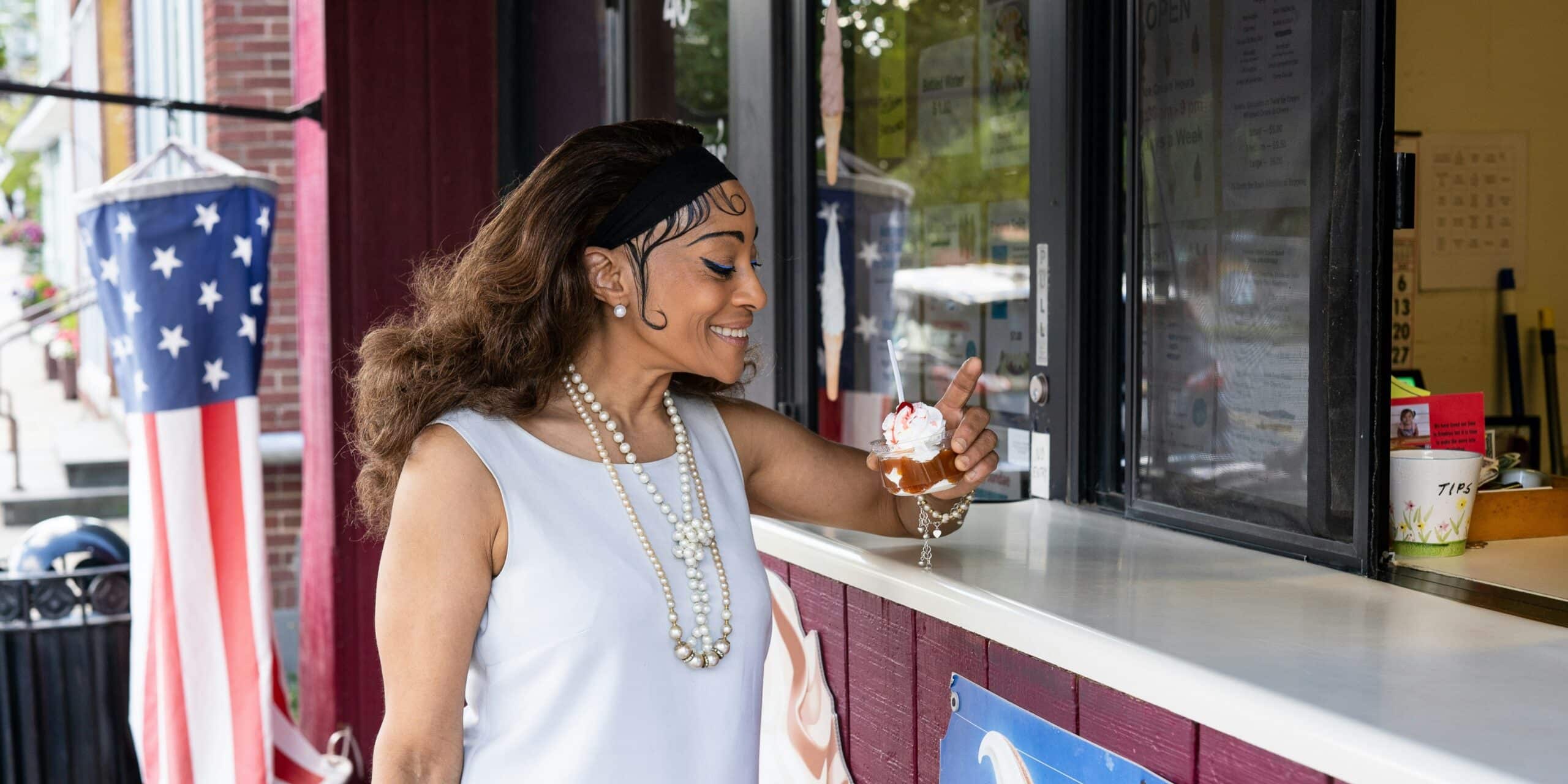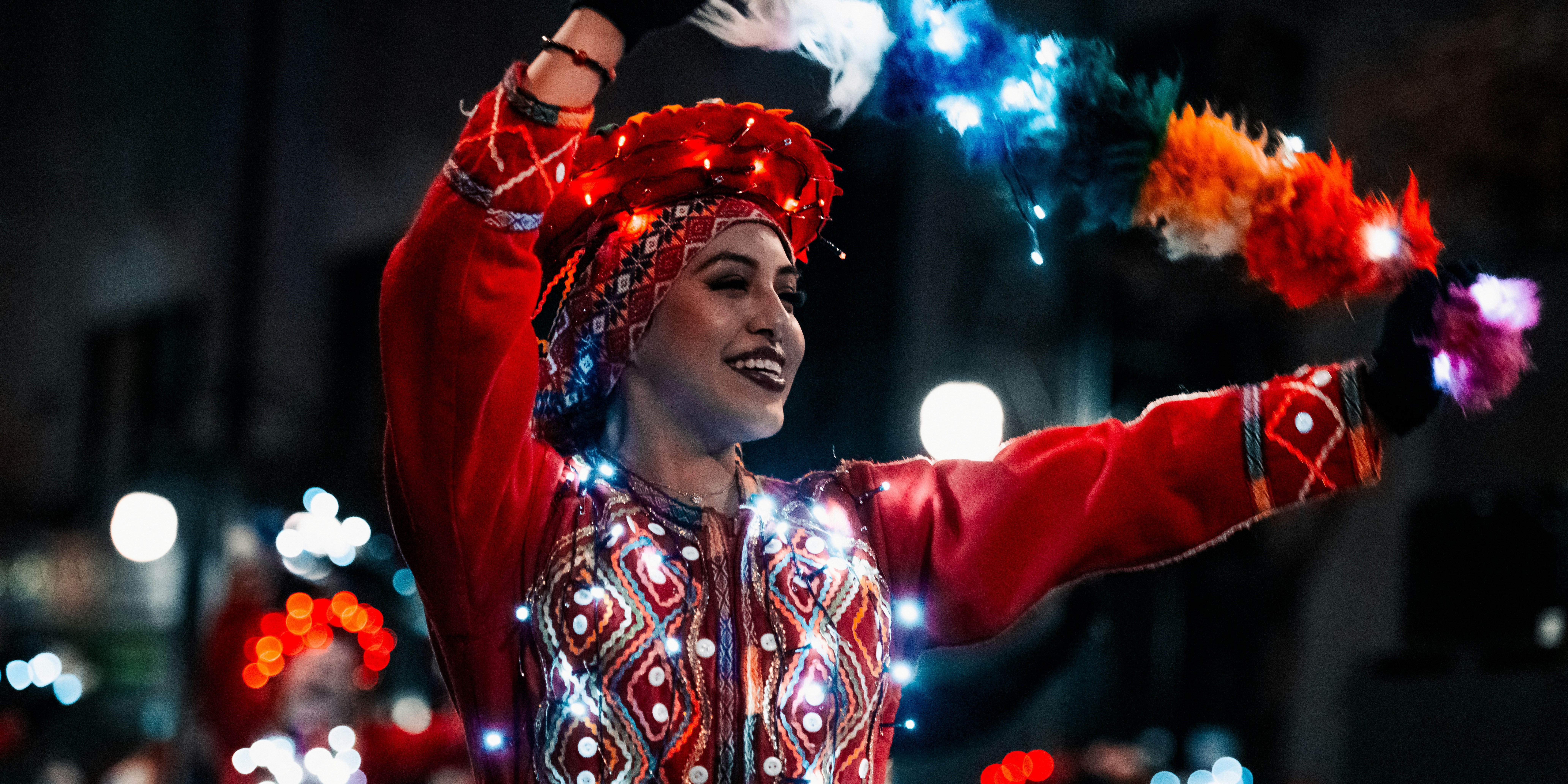By: Michael Kreitzer
Big events often affect our overall wellness, leaving us drained and overwhelmed. Did you know incorporating simple wellness strategies into these gatherings can significantly reduce stress?
This article will provide actionable insights on maintaining physical and mental well-being at major events.
Dive in for your guide to stay healthy, energized, and focused no matter the size of the gathering!
The Importance of Prioritizing Wellness at Big Events
When it comes to hosting big events, it’s really all about catering to the attendees’ needs. If visitors are not in a good state of mind, no matter how sharp all your presentations are or how crips your event CAD imports look, they won’t be on your audience’s priority list.
Impact of Stress on Attendees
Attendees often experience high stress levels at big events, leading to several adverse outcomes such as dietary relapse, binge eating, increased caffeine consumption, and long-term sleep deprivation.
Compounding these stresses may contribute to worsening mental health conditions. Attendee anxiety is not just a personal issue; it also impacts an event’s overall atmosphere and success.
The cumulative stress can also deter attendees from participating in future events, decreasing recurring attendance rates. A wellness-focused approach can also foster better networking and communication among attendees, as mentally and physically well individuals are more likely to engage positively.
Ensuring emotional well-being with self-care strategies and resilience-building activities helps manage this stress effectively. Everyone can benefit from prioritizing mental wellness in stressful situations, from student-athletes experiencing pressure on the field to professionals facing burnout due to work-life imbalance.
Adopting coping mechanisms that include relaxation techniques maintains a desirable environment for all attendees at large-scale gatherings.
Growing Trend of Wellness in Event Planning
Event professionals have seen an upward trend in emphasizing wellness during event planning over recent years. This focus on health and well-being prioritizes the needs of attendees, creating a more supportive and engaging environment for everyone involved.
Incorporating mindfulness into events has been one effective tactic to meet this objective. Event planners often facilitate meditation or other mindful activities, offering spaces for attendees to relax, breathe, and maintain their balance amidst all the action.
Furthermore, events incorporating wellness components often receive better feedback and testimonials. Attendees appreciate the consideration given to their overall health, making them more likely to recommend or return to such thoughtfully planned events.
Strategies for Incorporating Wellness into Events
Incorporating wellness in events already sounds like a no-brainer, but it’s also about how you execute that wellness that counts. Here’s several ways you can do it.
Mindfulness and Meditation Activities
Mindfulness and meditation activities offer powerful ways to ensure attendee wellness at your events. These strategies not only provide mental health promotion but also foster physical well-being.
Mindfulness, an approach of accepting the present moment without judgment, helps divert the mind away from negative thoughts. In your event’s itinerary, incorporating mindfulness activities such as deep breathing exercises or guided imagery sessions can help guests destress and stay focused.
Meditation and mindfulness are equally impactful for stress management during busy events. Meditation practices like mind-body awareness exercises or simple silent intervals can greatly reduce anxiety levels while promoting emotional well-being among attendees.
Event planners should routinely incorporate these relaxation techniques into their schedule to create a more positive and healthy event experience for all participants.
Having professionals or experts in mindfulness on board can ensure the techniques used are effective and tailored to the event’s specific demographic, further enhancing their effectiveness.
Outdoor Activities
Engaging in outdoor activities is a great way to incorporate wellness into big events. Whether it’s taking part in nature hikes, exploring green spaces, or participating in outdoor fitness classes, being outdoors can have numerous benefits for your well-being.
Research shows that spending time in nature can lower stress levels and improve mental health. Additionally, outdoor activities allow one to get moving and stay active, promoting physical fitness and overall wellness.
So why not take advantage of the beautiful surroundings at your next event and encourage attendees to engage in outdoor adventures?
Integrating local cultural or natural attractions into your event can provide unique experiences. This promotes wellness and gives attendees a memorable event experience, blending leisure with the main agenda.
Flexible Scheduling
Flexible scheduling is a key strategy for incorporating wellness into meetings, conferences, and events. By allowing adaptable and customizable schedules, attendees can prioritize their well-being throughout the event.
This proactive health measure goes beyond reactive approaches that may only address wellness after stress or burnout. With flexible scheduling, organizers can provide designated breaks, time for mindfulness activities or outdoor exploration, and even quiet spaces where attendees can recharge.
By implementing flexible scheduling and providing ample communication about upcoming wellness events, participation rates can be maximized while ensuring high attendee satisfaction.
Healthier Food Options
By integrating healthy food options into event planning, you can emphasize the importance of well-being and offer attendees nutritious and delicious choices.
Consider incorporating locally sourced, organic ingredients for a more sustainable approach. Offering a variety of healthy food and drink options supports physical health and contributes to mental well-being.
Prioritizing wellness through food selection shows that you value your attendees’ overall experience and helps create an environment where they can thrive.
Designated Quiet Spaces
At big events, it’s crucial to provide designated quiet spaces for attendees to find tranquility and practice mindfulness. These serene zones can be a refuge from the hustle and bustle, allowing individuals to take a break and recharge in a peaceful environment.
Whether it’s meditation areas, relaxation rooms, or calm retreats, these quiet havens allow participants to step away from the noise and find a moment of solitude. Event planners promote well-being by offering these zen zones and create opportunities for attendees to rejuvenate their minds amidst the event’s excitement.
Set Up Hydration Stations
At any big event, the hustle and bustle can easily lead attendees to forget the basics, like staying hydrated. The lack of adequate water intake can exacerbate feelings of fatigue, reduce concentration levels, and lead to dehydration. By setting up hydration stations throughout the venue, event organizers can encourage attendees to drink water regularly.
Strategically placing these stations near activity hotspots or session entrances not only makes hydration convenient but also serves as a gentle reminder. Infusing water with natural flavors like cucumber, lemon, or mint can make it more appealing, ensuring attendees keep their energy up and remain focused.
Limit Noise Pollution
Big events can be synonymous with high noise levels. While a certain degree of noise is expected and even adds to the event’s ambiance, continuous exposure can lead to increased stress and anxiety.
By strategically placing noise barriers and creating quiet zones, organizers can provide attendees with spaces to decompress and take a mental break. These zones can be equipped with noise-canceling headphones or calming music, offering a brief respite from the event’s chaos.
Additionally, using soft materials like carpets or drapes can absorb sound, reducing overall noise pollution and creating a more conducive environment for meaningful interactions.
Control Alcohol Consumption
While many big events feature alcohol as a means of relaxation and enjoyment, excessive consumption can lead to poor decisions, disruptive behavior, and health risks.
Organizers should consider implementing strategies to control alcohol consumption, such as offering a limited number of drink tickets per attendee or introducing time restrictions.
Additionally, providing a wide variety of non-alcoholic beverages ensures that attendees have options other than alcohol. Mocktails, herbal teas, and natural fruit juices can offer delightful alternatives. This approach not only safeguards the well-being of attendees but also maintains the decorum and professional atmosphere of the event.
Cater to Air Quality
The quality of air plays a crucial role in determining the comfort and health of attendees. In enclosed spaces, with a large number of people, it’s essential to ensure adequate ventilation.
Organizers can utilize air purifiers to reduce allergens and pollutants, making breathing easier and reducing potential allergic reactions. Introducing indoor plants is another excellent strategy.
Plants like the Spider plant, Boston fern, and Peace lily are known to purify air and can add a touch of nature to the event, creating a more relaxed ambiance. Periodic breaks for attendees to step outside and get fresh air can also make a significant difference.
Incorporating these strategies can transform the experience of attendees, turning potentially stressful events into occasions of enjoyment and meaningful connections.
Summary
Prioritizing wellness at big events is crucial for attendees’ mental and physical well-being. Event planners can create a wellness-focused environment by incorporating activities such as mindfulness exercises, outdoor breaks, and healthier food options.
Through simple but effective wellness interventions, event organizers can create an environment where every attendee feels taken care of and prioritized.
Remember to encourage attendees to take care of their well-being by snacking right, taking breaks, and engaging in mindful activities throughout the event. With these strategies in place, maintaining wellness at big events becomes an attainable goal for everyone involved.
Author Bio for Michael Kreitzer
Michael Kreitzer
Community Outreach Manager
OnePlan
Website
Michael is a community outreach manager at OnePlan, helping to spread the latest advice on how to deliver a great experience for every attendee. Prior to joining OnePlan, he gained extensive experience advising organizers of festivals and outdoor sporting events. Outside of work, he has two cats, Maeve and Simba, and loves cycling.
Published by: Holy Minoza










